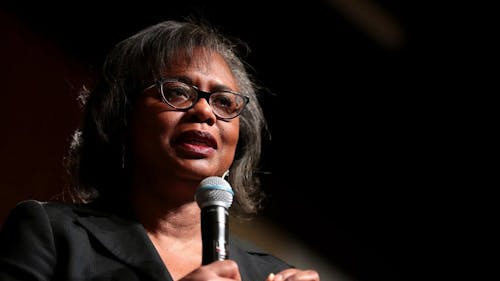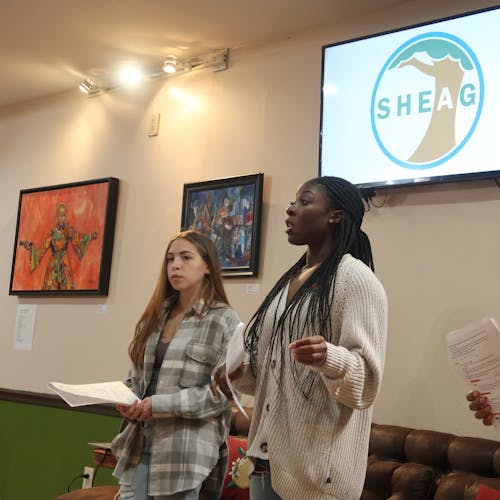Rutgers institute of politics notes surge in female politicians running for the House

The number of female candidates running for the U.S. House of Representatives is surging, the Rutgers Eagleton Institute of Politics reported.
As of April 6, 309 women filed to run for the House of Representatives in 29 states, all of which have been certified. Of that record number, 231 are Democrats and 78 Republicans.
Currently, 21 states have yet to file and certify their candidates, but there is hope that the results of those from the remaining states will reflect the trend, the report stated.
Although the numbers are groundbreaking, the female candidacy population is still substantially below that of males. As of April 6, women are only 21.9 percent of major party candidates that have filed to run for the House.
This percentage may seem minute, but has grown considerably over the years. The Eagleton Institute of Politics reported that in 2016, that same female demographic only reflected 17.8 percent of all candidates on the primary ballots.
The data examined the 29 states where candidacies have been filed and certified as of April 6. It highlights that females are not the only ones with rising statistics in the elections. While the total of female candidates rose from 2016 to 2018 from 163 to 309 — a 90-percent inflation -- the number of male candidates rose too.
The report showed that overall male candidacy jumped from 862 to 1,103 between 2016 and 2018, a 28-percent increase.
In an article titled, “Pink Wave: A Note of Caution,” the Rutgers Eagleton Institute of Politics stated that although the studies show that the number of females running for government positions is rising, there are other simultaneous trends being charted that should be noted.
One of those cautions is that “the 'pink wave' hues blue,” — a message to readers about the strong growth in female Democratic contenders as opposed to the more stagnant female Republican numbers.
Seventy-five percent of major party female candidates who have already filed to run for the U.S. House are Democrats, according to the report. Compared to the 12 percent of female contenders who are Republican, the study stated that there is an inherent female Democratic progression of those running.
There are other cautions as well. According to an article by the National Public Radio (NPR), the wave of female candidates is set for a wave of losses come November.
In total, 49 percent of the female Democratic candidates running for the House, Senate and governor are in “likely” or “safe” Republican races, the article stated. On the flip side, 34 percent of Republican women are in "likely" or "safe" Democratic races.
Another advisory is that “many women running are swimming against the tide,” according to the “Pink Wave: A Note of Caution.”
Fifty-nine percent of all potential female candidates running for the U.S. House and 61 percent of potential candidates in the Senate are attempting to unseat incumbents, a more challenging task.
“Open seats (no incumbent running) are the most winnable races for newcomers. Incumbents typically win 90 percent of the time or more,” another Rutgers Eagleton Institute of Politics article stated.
Regardless, women at the polls continue to face the prevailing trials of male action, according to the article.
In 1992 — a year in which there was a particular surge in female political candidates — one of the most discussed topics was “the Senate Judiciary Committee’s insulting and dismissive treatment of Anita Hill when she testified about being sexually harassed by Clarence Thomas.”
During the trial, Hill, a young politician, claimed that Thomas, an older Black man, harassed her during her time serving under him. At the time, there were only two women in the entire Senate, the article stated.
Hill, a leading figure in the Time's Up movement and a vocal advocate for equal rights for women, was announced as the Rutgers—Camden 2018 commencement speaker by the Board of Governors in February.
According to the article, “stories of sexual harassment and assault, whether in entertainment, the media, sports or politics, were omnipresent in 2017 and are one factor driving women’s political mobilization during the 2018 election cycle."



